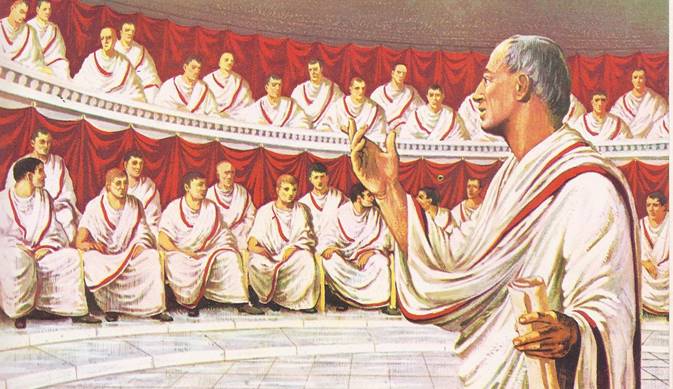The houses of Venice are “like sea-birds half on sea and half on land,” said Cassiodorus. An officer of a king of the Goths, Cassiodorus saw Venice in 537. It was a little settlement of huts built on the mud-flats in an out-of-the-way lagoon. Its people were refugees‚ Italians who had been driven from their homes by a horde of barbaric invaders. They were safe in the lagoon, for no stranger could navigate the treacherous channels. For the sake of safety, they were content with comforts that were simple at best. “In this place,” Cassiodorus said, “rich and poor are …
Read More »Tag Archives: Alexander the Great
The City Divided 130 B. C. – 70 B. C.
MARCUS TULLIUS CICERO, a young statesman known for his dramatic speeches, stood before a panel of judges in a courtroom in Rome. He stared at them angrily. For fifty days he had travelled through Sicily, collecting facts about the crimes committed by Caius Verres, the man who was on trial. Now the judges had told him that there would not be time to listen to his evidence. Cicero knew that the judges had been bribed. For it was no ordinary criminal that he meant to send to prison or to death. Caius Verres was an aristocrat and a senator and …
Read More »City of Romulus B. C. 900 – 256
In the time when savage warriors roamed the plains and mountains of Italy, there stood on six low hills, just south of the river Tiber, six clusters of round huts made of twigs and leaves stuck together with mud. Each was a little town, the home of barbarian tribesmen. They herded cattle on the plain below, chased the wild pigs in the woods and tried to make things grow in their marshy fields. Although the towns were always fighting or stealing cattle and sheep from each other, they shared a market place in a clearing beside the river. They also …
Read More »

